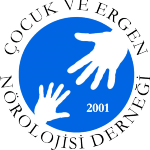Latest developments in "Neurodegeneration with Brain Iron Accumulation (NBIA)" and the state of Turkiye

“Neurology is the science of the structure and all of the actions of the nervous system in health and in disease, in man and in animals, in the foetal, the infantile and the adult organism.” Zülch KJ. The place of neurology in medicine and its future; Handbook of Neurology, Vinken & Bruyn eds. North Holland Publishing Company, Amsterdam 1969. “Neurology (neuroscience) is the branch of science that studies the structure and all functions of the nervous system in health and disease, in humans and animals, in the fetus, babies and adults organisms.”
Latest developments in “Neurodegeneration with Brain Iron Accumulation (NBIA)” and the state of Turkiye
Rare diseases have become the main topic of scientific progresses all over the world for 15 years. One of these disease groups that opened horizons about understanding mechanisms of the diseases and new therapeutic approaches is the diseses under the name of “neurodegeneration with brain iron accumulation (NBIA)”. As our knowledge of their molecular pathology expended by the help of next generation sequencing methods, new therapeutic approaches to these diseases became a topical and open field of researches. The recent (2022) number of diseases belonging to NBIA group is 15. The most relatively well-known diseases of NBIA are pantothenate kinase-associated neurodegeneration (PKAN-formerly called Hallervorden-Spatz Disease), mitochondrial membrane protein-associated neurodegeneration (MPAN), phospholipid A2-related neurodegeneration (PLAN), Beta-propeller protein-associated neurodegeneration (BPAN), and Kufor-Rakep Syndrome (KRS) (disease list is presented in the supplement). Prevelance of NBIA is 0,1-0,3/100,000 and most of them are transmitted in an autosomal recessive manner. NBIA researches started via projects connected to 7th Framework Programme for Research and TUBITAK in 2010, and international colloborations were built with “European Multidisciplinary Initiative on Neuroacanthocytosis (EMINA) and “Treat iron-related childhood-onset neurodegeneration (TIRCON). During these researches and follow-up studies, the number of NBIA patients reached 107 in our center (Istanbul University, the Faculty of Medicine, Department of Neurology) while increasing our experience and giving rise to international articles. Dr. Zuhal Yapici established the Turkish NBIA Study Group in 2023 and she was elected as the leader. This progress designated for the accelaration of clinical and basic science, increase in scientific knowledge and generating Turkey’s NBIA data. Announcements of the Turkish NBIA Study Group will be held via Turkish Neurological Society, Turkiye Parkinson’s and Movement Disorders Society, Child and Adolescent Neurology Association (CENDER) and Istanbul University web pages. Building bridges between basic sciences (biology, genetics, …) and clinical sciences (neurology, radiology, neurosurgery, psychiatry, pediatric neurology, …), leading valuable researches with new projects should be the main work. These partnerships are very important for the comprehension of ‘translational neurology’ in our country. We believe that this partnership will be established and give rise to productive results despite all challenges of socio-economic developments in the world and our country. All neurologists and child neurologists following NBIA group, neurosurgeons implanting brain pacemakers to these patients, radiologists approving of iron accumulation in their reports, geneticists who could or could not show pathological disease variants, and social media interested in this topic are included in this announcement. What can be done within the scope of cooperation regarding NBIA is stated below:
– Conducting doctoral and master’s theses through genetic and cell studies, researches on iron accumulation in the brain through MRI engineering, immunological studies, other clinical and basic science studies.
– Collaborations with other universities and companies.
– Organizing symposiums/workshops/informative seminars and congresses. NBIA projects can be submitted to the ÇENDER board of directors every two months.
Zuhal YAPICI, M.D.
Professor of Neurology and Child Neurology
On behalf of ÇENDER board committee
İU, Istanbul Faculty of Medicine
Email: zyapici@istanbul.edu.tr

(EBioMedicine, 2022 77:103869)
